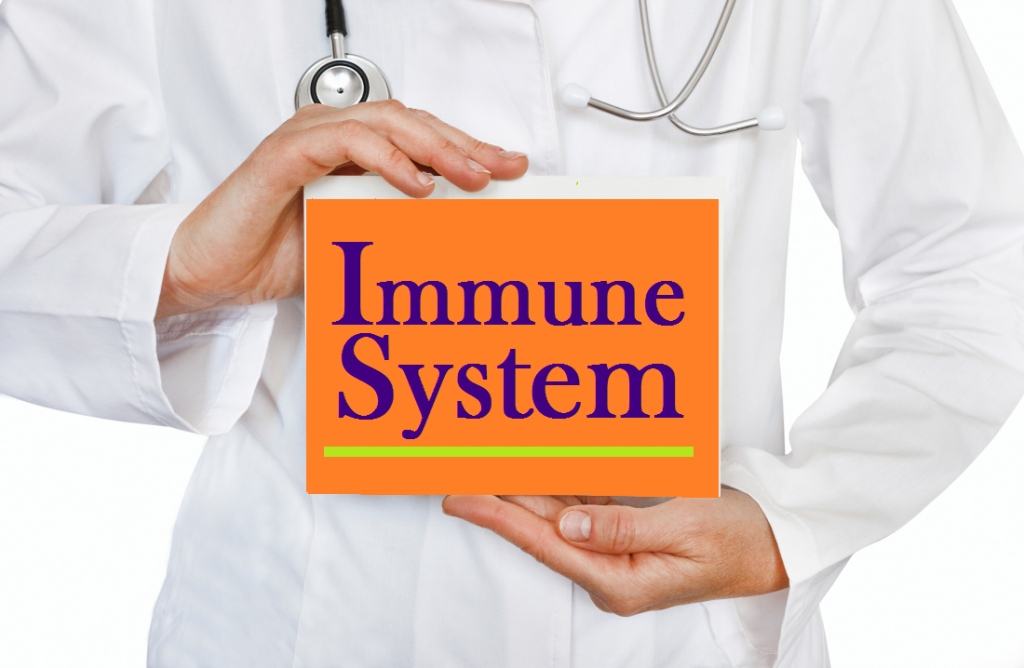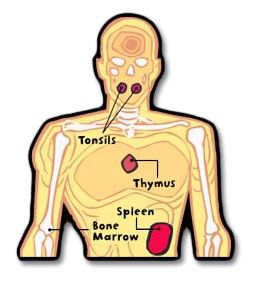 The immune system (also called the Lymphatic system) protects the body from infections and diseases. It is made up of a network of cells, tissues, and organs that produce, store, and carry white blood cells that fight infections and other diseases. This system includes the bone marrow, spleen, tonsils, thymus, lymph nodes, and lymphatic vessels.
The immune system (also called the Lymphatic system) protects the body from infections and diseases. It is made up of a network of cells, tissues, and organs that produce, store, and carry white blood cells that fight infections and other diseases. This system includes the bone marrow, spleen, tonsils, thymus, lymph nodes, and lymphatic vessels.
The good guys
 The players in the immune system include:
The players in the immune system include:
- Lymph — a clear fluid that travels through the lymphatic system and carries cells that help fight infections and other diseases.
- Lymph nodes — rounded masses of lymphatic tissue that is surrounded by a capsule of connective tissue. Lymph nodes filter lymph, and they store white blood cells. They are located along lymphatic vessels.
- Lymph vessels — thin tubes that carry lymph and white blood cells through the lymphatic system. They branch, like blood vessels, into all the tissues of the body.
- The thymus — an organ in the chest behind the breastbone. T lymphocytes grow and multiply in the thymus.
- The spleen — an organ on the left side of the abdomen, near the stomach. It produces some white blood cells, filters the blood, stores blood cells, and destroys old blood cells.
- White blood cells — cells are made by bone marrow and help the body fight infection and other diseases. There are lots of types of white blood cells.
The Enemy
- Antigen—a toxin or other foreign substance that induces an immune response in the body, especially the production of antibodies. Antigens can be bacterium, viruses, etc. There’s a different antigen for every cold that you’ve ever had and every type of flower that’s ever made you sneeze.
How it works
White blood cells patrol the body. When they come across an antigen, they produce an antibody. The antibody binds to the antigen. Each antigen is shaped differently. The immune system has to produce the antibody that fits it exactly. Some antibodies destroy antigens when they bind with them. Others make it easier for white blood cells to destroy the antigen.
As long as our body’s system of defense is running smoothly, we do not notice the immune system. Yet, different groups of cells work together and form alliances against just about any pathogen (germ). However, illness can occur if the performance of the immune system is compromised if the pathogen is especially aggressive, or if the body is confronted with a pathogen it has not come into contact before.
